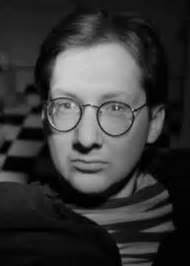A Quote by Garth Greenwell
I take pleasure as a reader in books that tease with a kind of urgency of the real, even if it's only a manufactured effect.
Related Quotes
The poem is not, as someone put it, deflective of entry. But the real question is, 'What happens to the reader once he or she gets inside the poem?' That's the real question for me, is getting the reader into the poem and then taking the reader somewhere, because I think of poetry as a kind of form of travel writing.
If you are reading in order to become a better reader, you cannot read just any book or article. You will not improve as a reader if all you read are books that are well within your capacity. You must tackle books that are beyond you, or, as we have said, books that are over your head. Only books of that sort will make you stretch your mind. And unless you stretch, you will not learn.
It's great that there are so many different kinds of books for kids and adults to choose from. I think an eclectic reader is the best kind of reader to be, which would be why I was always so satisfied to hear that kids read the Baby-Sitters Club books and then went on and discovered other authors and other genres.
If there is any kind of legitimate ostalgia, it's for everything we've never even seen, the women we've never slept with, never dreamed of, the friends we haven't made, the books we've never read, all the food steaming in the pots we've never eaten out of. That's the only real kind of nostalgia there is.
The analytical writer observes the reader as he is; accordingly, he makes his calculation, sets his machine to make the appropriate effect on him. The synthetic writer constructs and creates his own reader; he does not imagine him as resting and dead, but lively and advancing toward him. He makes that which he had invented gradually take shape before the reader's eyes, or he tempts him to do the inventing for himself. He does not want to make a particular effect on him, but rather enters into a solemn relationship of innermost symphilosophy or sympoetry.
A tease is a con. You press a spot because you know that it can be pressed, and while the sucker is feeling the pleasure or the pain resulting from the pressure, you take something from him. ...A flirt doesn't do that. A flirt does a dance within the context of giving pleasure. Referring to this, referring to that. And suddenly, following the references, you find a little surprise. Nothing enormous. Nothing like 'Feed on me.' Nothing like that. Something small with a bow on it. It's a pleasure. A surprise, and a *gift*.
Every reader, as he reads, is actually the reader of himself. The writer's work is only a kind of optical instrument he provides the reader so he can discern what he might never have seen in himself without this book. The reader's recognition in himself of what the book says is the proof of the book's truth.






































